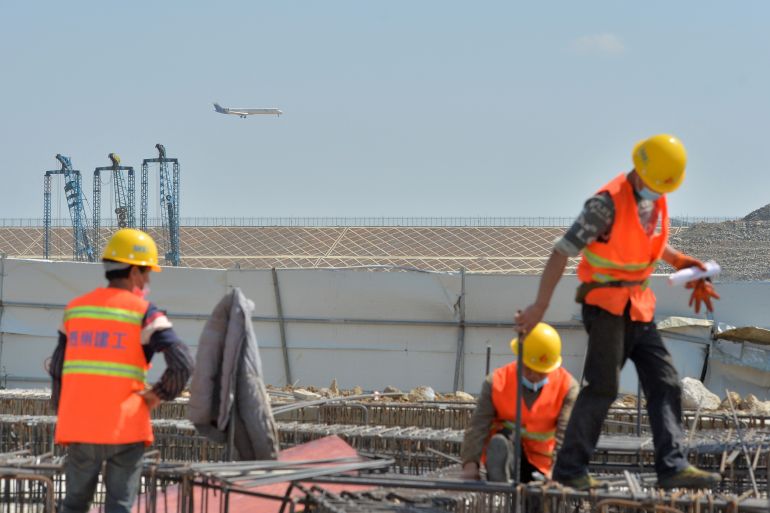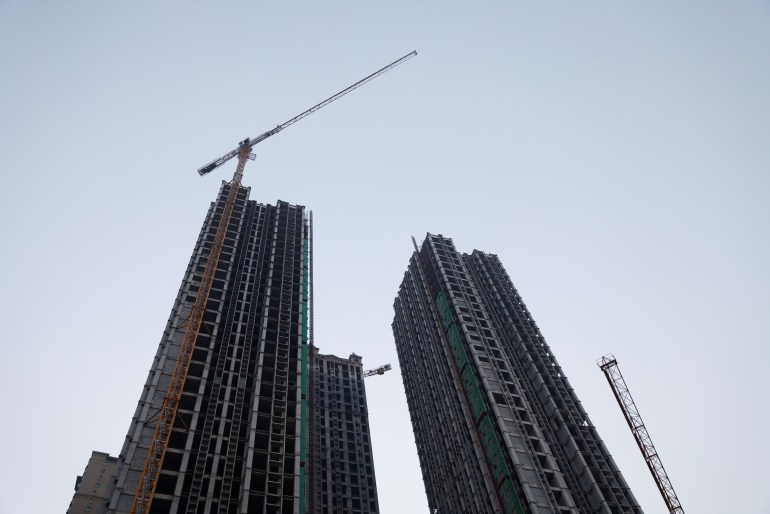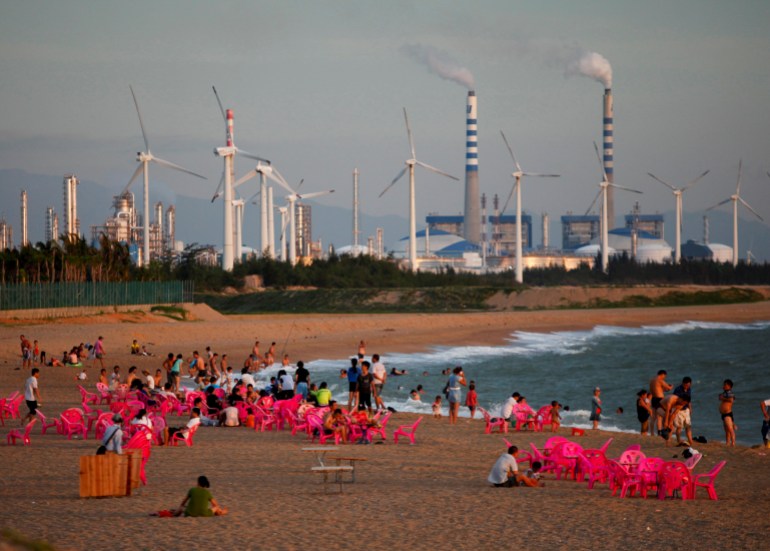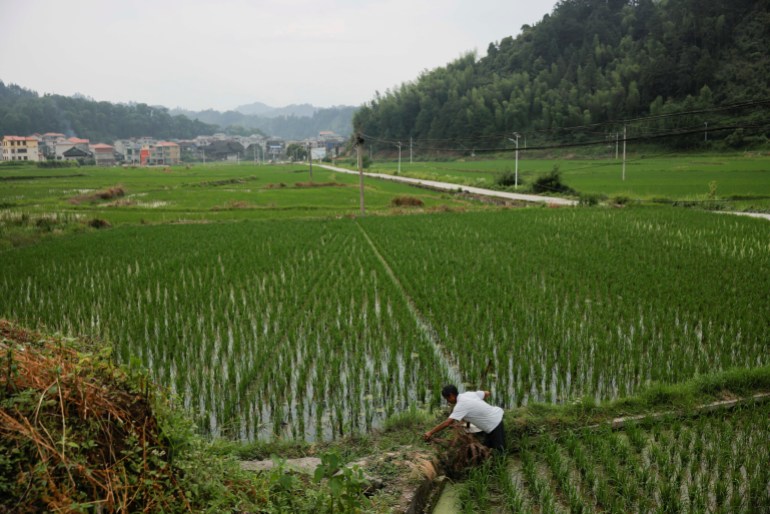China’s cash-strapped local governments can’t pay workers on time
China’s local municipalities are heavily in debt, with all 31 apart from Shanghai reporting deficits in 2022.

Hu Mingdan, a civil servant in eastern China, prided herself on landing a job known as an “iron rice bowl” – the kind where you don’t worry about being laid off or chasing payment.
That is until late last year when, for the first time in more than 10 years of working as an accountant for the local government, Hu’s paycheck was delayed for three months.
Keep reading
list of 4 itemsIs Messi leaving PSG for Saudi Arabia’s Al Hilal?
US salary transparency laws aim to circumvent disparities
Taxpayer ripoff or bargain? The cost of the British royal family
“Many of my colleagues’ salaries were delayed, and it was hard because we have families to feed,” Hu, who lives and works in Nanchang, Jiangxi province, told Al Jazeera. “This was unimaginable before.”
Hu’s delayed wages are a symptom of a deeper malaise in the finances of local governments in China.
Across the world’s second-largest economy, cash-strapped provincial and local governments are auctioning off public schools, cutting back on contracts with private contractors, and slashing pensions.
Despite China’s better-than-expected economic growth of 4 percent in the first quarter of 2023, many subnational authorities are deeply mired in debt, posing a challenge to the country’s recovery from COVID-19 and nearly three years of tough pandemic curbs.
Last month, Guizhou, one of China’s poorest provinces located in the country’s mountainous southwest, appealed to Beijing for a potential bail-out to avoid defaulting on its debt.
The Centre for Development Research, a research centre affiliated with the provincial government, said Guizhou’s levels of debt had become a “significant and urgent issue” and become “unusually difficult” to pay off.
The Guizhou government did not respond to Al Jazeera’s request for comment.

Guizhou is not alone in being in the red.
In 2022, each one of China’s 31 provinces and municipalities, except for Shanghai, reported fiscal deficits, according to the National Bureau of Statistics.
Excessive spending on “zero-Covid”-related policies and the downturn in the real estate market have contributed significantly to local governments’ financial woes, according to analysts.
“The government was relying on rapid GDP growth and soaring land prices to service its debt,” Cheng Juelu, a Shanghai-based economist and expert on China’s local government debt, told Al Jazeera. “However, the pandemic and the real estate market situation have turned those assumptions on their head.”
China’s “zero-Covid” strategy, which prioritised stamping out coronavirus cases at almost any cost, placed a severe strain on local authorities’ finances.
Many Chinese municipalities are still feeling the cost of lockdowns, mass PCR testing, and centralised quarantine, which required considerable resources in terms of money and manpower in addition to causing severe disruption to the economy.
Guangdong, Zhejiang and Beijing, three of the biggest economic powerhouses in China, spent more than 140 billion yuan ($20bn) collectively last year on pandemic control.
On top of this spending, government coffers were deprived of revenues from businesses disrupted by lockdowns and other pandemic curbs.

In Hainan, a popular resort island off of China’s southern coast, pandemic curbs directly caused a 9.6 percent reduction in government revenues in 2022, according to the province’s budget report for 2023.
China’s imploding real estate market, a major engine of economic growth, has compounded the fiscal situation.
Despite Beijing easing up on measures to rein in property developers’ reliance on debt, which sent the market into a slump, confidence among developers and consumers remains low.
Revenues from land sales, long a key source of local government revenue, have plummeted in the past year, leaving unfinished skyscrapers across the country.
All in all, 22 out of the 31 provinces in China saw declines in revenues in 2022, according to budget plans for 2023.
Facing financial pressure, many local governments have cut back on spending, in some cases cutting pensions, delaying salaries and reducing contract jobs.
In February, retirees in Wuhan and Dalian took to the streets to protest cuts to the monthly allowance offered as part of China’s healthcare insurance system.

Beijing has taken notice and announced measures aimed at supporting local governments and businesses. In March, former Premier Li Keqiang announced that China would increase its budget deficit target to 3.8 percent of gross domestic product (GDP), up from 3.2 percent in 2022, to provide additional fiscal stimulus to the economy.
Despite these efforts, some analysts remain sceptical of local governments’ ability to manage their debt problems and support the economy’s post-Covid recovery.
“The Chinese government’s ability to control the situation remains in doubt,” Cheng said. “The debt problem has been growing for years, and while the government’s measures may provide some temporary relief, they do not address the root causes of the problem.”
For Hu and many other Chinese citizens, delayed salary payments and economic uncertainty have been a sobering reminder of the challenges facing China as it seeks to navigate its post-pandemic recovery.
“I never thought I would experience something like this,” Hu said. “It’s a tough time for everyone.”